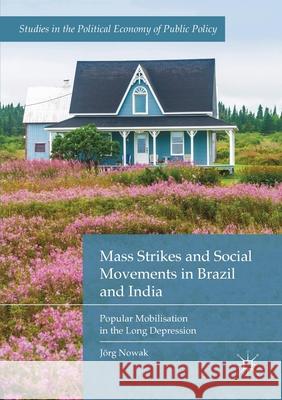Mass Strikes and Social Movements in Brazil and India: Popular Mobilisation in the Long Depression » książka
topmenu
Mass Strikes and Social Movements in Brazil and India: Popular Mobilisation in the Long Depression
ISBN-13: 9783030731267 / Angielski / Miękka / 2021 / 319 str.
Mass Strikes and Social Movements in Brazil and India: Popular Mobilisation in the Long Depression
ISBN-13: 9783030731267 / Angielski / Miękka / 2021 / 319 str.
cena 362,27
(netto: 345,02 VAT: 5%)
Najniższa cena z 30 dni: 346,96
(netto: 345,02 VAT: 5%)
Najniższa cena z 30 dni: 346,96
Termin realizacji zamówienia:
ok. 16-18 dni roboczych.
ok. 16-18 dni roboczych.
Darmowa dostawa!
Kategorie BISAC:
Wydawca:
Palgrave MacMillan
Język:
Angielski
ISBN-13:
9783030731267
Rok wydania:
2021
Wydanie:
2019
Ilość stron:
319
Waga:
0.39 kg
Wymiary:
21.01 x 14.81 x 1.75
Oprawa:
Miękka
Wolumenów:
01
Dodatkowe informacje:
Wydanie ilustrowane











